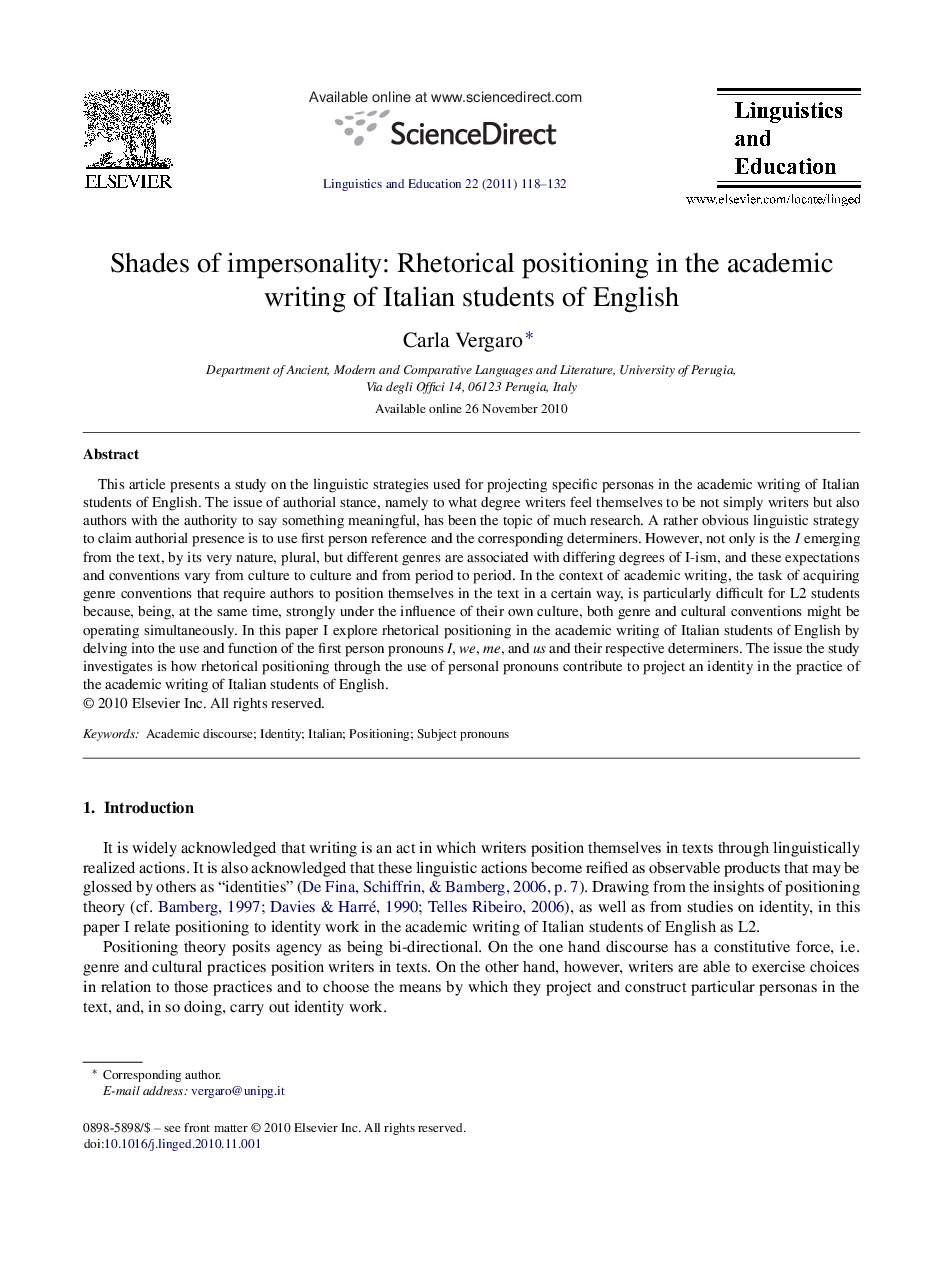| Article ID | Journal | Published Year | Pages | File Type |
|---|---|---|---|---|
| 366430 | Linguistics and Education | 2011 | 15 Pages |
This article presents a study on the linguistic strategies used for projecting specific personas in the academic writing of Italian students of English. The issue of authorial stance, namely to what degree writers feel themselves to be not simply writers but also authors with the authority to say something meaningful, has been the topic of much research. A rather obvious linguistic strategy to claim authorial presence is to use first person reference and the corresponding determiners. However, not only is the I emerging from the text, by its very nature, plural, but different genres are associated with differing degrees of I-ism, and these expectations and conventions vary from culture to culture and from period to period. In the context of academic writing, the task of acquiring genre conventions that require authors to position themselves in the text in a certain way, is particularly difficult for L2 students because, being, at the same time, strongly under the influence of their own culture, both genre and cultural conventions might be operating simultaneously. In this paper I explore rhetorical positioning in the academic writing of Italian students of English by delving into the use and function of the first person pronouns I, we, me, and us and their respective determiners. The issue the study investigates is how rhetorical positioning through the use of personal pronouns contribute to project an identity in the practice of the academic writing of Italian students of English.
Research highlights► Genre analysis. ► Rhetorical positioning. ► Personal pronouns. ► Identity.
